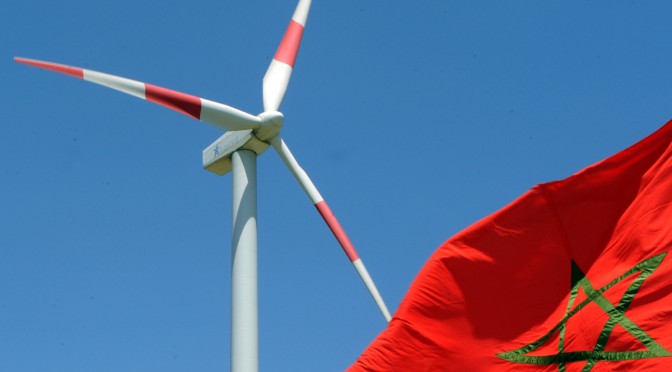On Tuesday 25 July, the National Office of Electricity and Drinking Water (ONEE) announced the entry into service of the Boujdour wind farm, Morocco’s eighth wind power project.
With the official inauguration and commissioning of an eighth wind power project, Morocco’s energy sector enters a new era aimed at boosting the country’s economy while trying to preserve the environment.
ONEE announced that “Morocco has taken another important step in its commitment to accelerate its energy transition with the commissioning of all the wind turbines of the Boujdour wind farm.”
The contract for the construction of this wind farm was signed in November 2019 between the Moroccan Agency for Sustainable Energy (MASEN) and ONEE, as well as private partners resulting from various tenders. This new construction, started in 2021, will increase the electricity transmission capacity of the grid in southern Morocco. It will provide a more efficient and reliable electricity transmission and distribution service, especially over long distances.
The Boujdour wind farm is the 17th largest Moroccan wind project in the world and the largest transformer station, to date, with a capacity of 400/225 megawatts (MW). It was launched within the 850 MW Integrated Wind Energy Project program, and its installed power represents 300 MW of the total project. The rest of the wind projects are located in Midelt (180 MW), Jbel Lahdid in Essaouira (200 MW), Tiskrad in Tarfaya (100 MW) and Tangier II (70 MW).
The collaboration between ONEE and private partners on the Boujdour project reflects not only the desire to promote sustainable energy practices, but also Morocco’s position as an international leader in the fight against climate change. In fact, this new wind farm is positioned as a large clean energy production plant, capable of satisfying the energy needs of thousands of Moroccan homes. The plant is expected to produce more than 1,500 gigawatt hours of clean energy, reducing greenhouse gas emissions by 1,145,000 tons of CO2 per year.
The Boujdour wind farm project has required an investment of 3.9 billion Moroccan dirhams, about 402 billion US dollars. The energy produced by the Boujdour wind farm will be supplied to ONEE under a purchase contract with one of the lowest rates in the world. Finally, the project will create about 30 direct and 300 indirect jobs for Moroccan citizens.
Commenting on these achievements, ONEE Director General Abderrahim El Hafidi said: “The commissioning of the Boujdour wind farm and the transition to 400 kV for the southern grid are key milestones in our ongoing commitment to a future more sustainable energy. These projects reflect our determination to help reduce our country’s carbon footprint and build a sustainable future for Morocco.”
National energy strategy of Morocco
The Moroccan Ministry of Energy Transition and Sustainable Development (MTEDD) attaches great importance to the new strategy adopted for the energy sector. The main objective of this strategy is to make the sustainable energy transition an engine of economic and social development in Morocco. According to the MTEDD, the main objectives of this strategy are to guarantee security of supply, availability of energy, widespread access to energy, control of demand, and preservation of the environment.
The Ministry aims for 52% of electricity consumption to come exclusively from renewable energy by 2030, while gradually reducing its energy dependence on external exports. In addition to developing wind farms, Rabat has invested heavily in solar energy, as the Noor Ouarzazate and Noor Midelt projects demonstrate.


